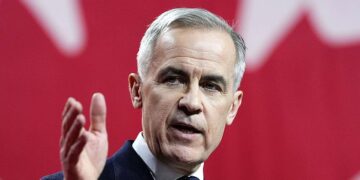By Oyintari Ben
Amid one of the country’s largest strikes in decades, Germany’s transportation system is practically paralysed.
Soon after midnight, employees at ports, railroads, buses, and subways began to leave for a 24-hour strike.
Two of Germany’s major unions request increased wages to assist their members in adjusting to the growing cost of living.
Other public employees have recently staged smaller walkouts.
Deutsche Bahn, Germany’s national rail operator, commuter and regional trains have been impacted by the “mega strike,” as it has been termed in local media.
Local transportation options like buses and trams are also unavailable in seven states.
Numerous thousand flights have been cancelled, including at Munich and Frankfurt International Airports, two of the largest in the nation.
On Sunday, strike activity also affected several flights out of Munich Airport.
An individual, who was trying to fly to the Spanish city of Málaga, commented, “I am kind of astonished. “I have to find out what to do right away because I didn’t hear about it [the strike].
According to Germany’s airport association, about 380,000 passengers will be affected by the strike, but it was described as “beyond any imaginable and justifiable measure.”
About 2.5 million public sector workers, including those who work in airports and public transportation, are represented by Verdi. It seeks to get employees a wage raise of 10.5%.
About 230,000 employees of Deutsche Bahn and other bus operators are represented by EVG. It demands a 12% wage increase.
A new round of compensation negotiations will take place this week, and both unions anticipate that the strike will put further pressure on the employers.
In an interview with the German media Bild, Frank Werneke, the CEO of Verdi, said that the salary increase was “a matter of survival for many thousands of employees.”
He said that the workers were not just underpaid but also grossly overworked.
Martin Burkert, the chairman of the EVG, told the local Augsburger Allgemeine newspaper that employers had not yet offered a workable offer to them and that additional strikes might occur, possibly even during the Easter vacation.
The walkout in February was similar to the one on Monday. The cancellation of more than 2,300 flights led to accusations from small- and medium-sized business group officials that the unions were holding the entire nation hostage for their own purposes.
Other public service sectors, including daycare and education, have also repeatedly staged walkouts in recent weeks.



































